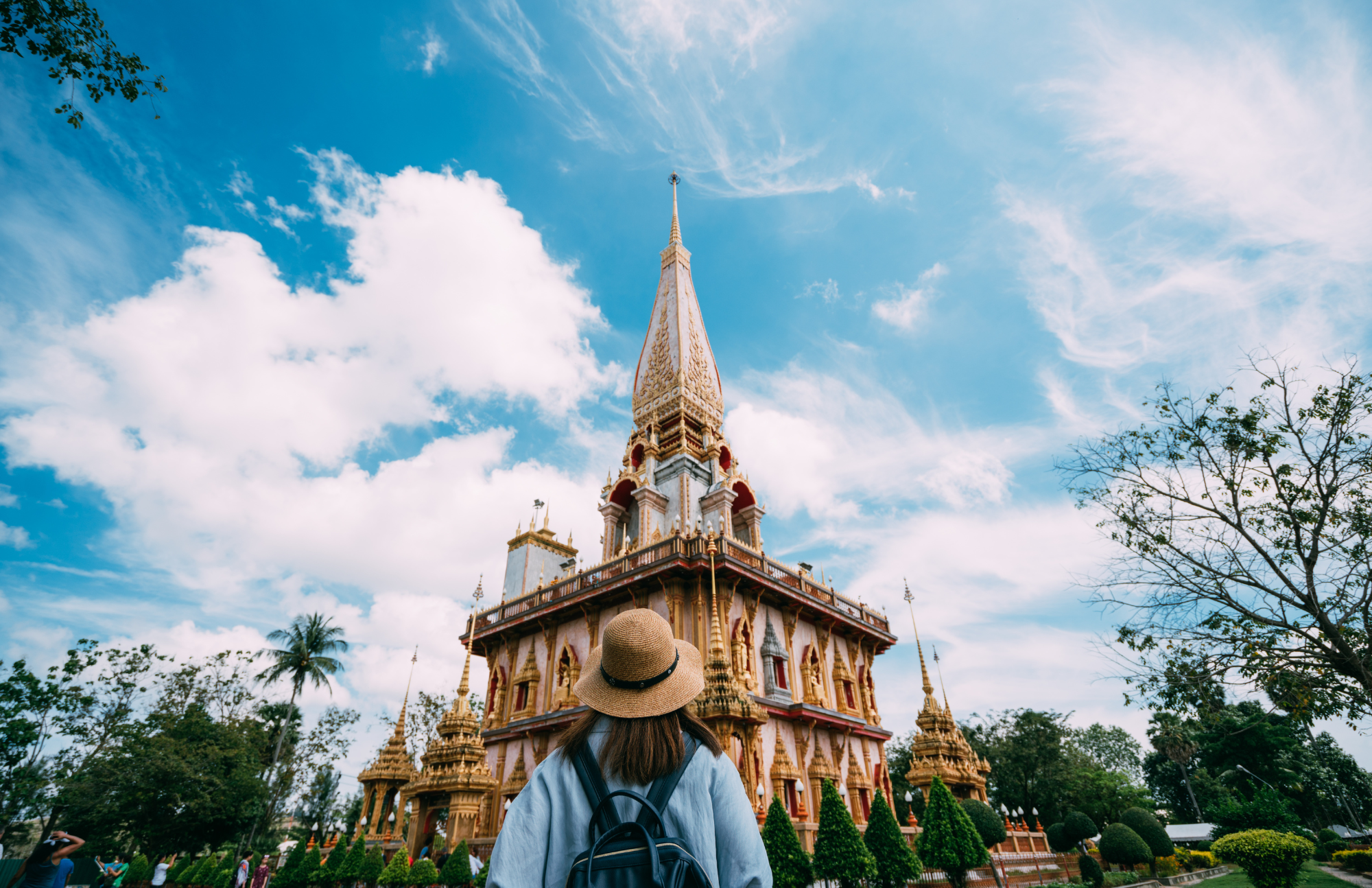The Expat Life Cycle
Being an expat and living this global lifestyle brings particular challenges and opportunities that we often don’t experience when we stay in the cosy comforts of our home country. Moving to a foreign country takes bravery, resilience, and a true sense of adventure. Between the language and cultural differences, stacks of admin required, and finding and establishing new routines, the expat experience is beautiful but certainly not for the faint of heart.
For expats who are new to this journey, there are a few aspects of the expat cycle that can be helpful to understand as you ride the thrilling wave of expat life. And for those who have been through the expat transitions a few times, knowing that the feelings you have had, and the emotions attached, are normal and have even been described in phases can be very reassuring.
The Four Phases: Preparation, Honeymoon, Culture Shock, and Adaptation

Phase 1 of the Expat Life Cycle: Preparation/pre-departure:
The pre-departure stage of expatriation can be a mix of excitement, anticipation, anxiety, and practical preparations.
Making the decision to move and/or work abroad is often accompanied by a sense of excitement and adventure. The prospect of exploring a new country, experiencing a different culture, and embarking on a new chapter in life can be exhilarating.
As the departure date approaches, there's a sense of anticipation about what life will be like in the host country. You might daydream about all the new experiences you'll have, the people you'll meet, and the places you'll visit. Alongside the excitement, though there can be feelings of anxiety or nervousness. Leaving behind familiar surroundings, family, friends, and the comforts of home can be daunting. The fear of the unknown and uncertainty about how you'll adapt to the new environment can trigger anxiety.
As you prepare for your big move, you'll likely spend a lot of time researching the host country. You might learn about its culture, customs, language, local norms, and practical aspects of living there. This research is essential for understanding what to expect and how to navigate your new surroundings. You'll also need to deal with practical matters such as obtaining visas, finding housing, arranging transportation, and managing finances.
As the time starts to edge closer, the “saying goodbye” part of this stage kicks in, and sometimes it can feel like it goes on forever. As the departure date gets closer, saying these goodbyes can be an emotional experience as you prepare to leave behind your support network.
And there is a mix of emotions as you prepare to depart. While you're excited about the opportunities ahead, you may also experience moments of doubt, sadness, or even a bit of apprehension about the challenges you'll face.

Phase 2 of the Expat Life Cycle - Honeymoon phase
Ahhhh the "honeymoon phase". That sweet period when expat life is pure bliss.
This phase refers to the initial period after arriving in a new country when everything seems exciting, fresh, and positive. This phase is characterized by feelings of fascination, novelty, and a general sense of adventure. Similar to the honeymoon phase in a romantic relationship, you may experience a period of intense positivity and enthusiasm during your early days in the host country. There is so much curiosity and the excitement to explore is strong. Everything is new and different.
In the honeymoon phase, we are eager to explore our surroundings, excited to discover new places, try local foods, and immerse in the culture. Everything feels novel and intriguing.
During this phase, you may also tend to focus on the positive aspects of your new environment. You may see everything through rose-colored glasses, overlooking potential challenges or difficulties.
In the honeymoon phase, we also often have a heightened sense of adventure - open to taking risks, trying new activities, and stepping out of our comfort zone.
We may also experience a sense of euphoria and enthusiasm about the new experiences and opportunities that our new country offers us. This can lead to a boost in motivation and energy levels.
We become fascinated and captivated by the culture we are in and find joy in learning about local customs, traditions, and ways of life.
During this time, challenges and cultural differences may arise, but during this period, we tend to approach them with a positive attitude and optimism, and challenges are seen more as learning experiences rather than obstacles.
Also during this phase, we have the motivation and energy to start building social connections and we put forth efforts to engage with new networks of people.
Overall, the honeymoon phase is characterized by a generally elevated mood and a strong sense of satisfaction. Expatriates feel grateful for the opportunity to experience a new culture and way of life.

Phase 3 of the Expat Life Cycle - Culture shock
The culture shock phase is a significant aspect of the expat life cycle and often follows the honeymoon phase. Culture shock refers to the emotional and psychological disorientation that individuals experience when they encounter unfamiliar cultural norms, behaviors, and ways of life in a new country. It can be a challenging and sometimes difficult phase, but it's a natural part of the adaptation process.
Here's how the culture shock phase typically unfolds:
The initial euphoria begins to wane. As the excitement of the honeymoon phase fades, we start noticing cultural differences that we might not have been aware of before. The novelty of everything begins to wear off, and we may start to feel overwhelmed by the unfamiliarity of the new environment.
It is also common to feel a sense of frustration and discomfort. We encounter situations that challenge our expectations and shake our assumptions. It can be hard to struggle to communicate effectively, navigate daily tasks, or understand social cues. This can lead to frustration, anxiety, and a sense of helplessness.
As our brains are always looking for ways to protect us, we tend to focus on the negative. We start making comparisons between our new host culture and our home culture. The focus is on what's missing or different rather than appreciating the new experiences. Thinking in this way can contribute to feelings of nostalgia and homesickness.
One of the hardest parts of this phase is the feelings of isolation and loneliness.
It is very common for expats to experience a sense of isolation as we realize that building meaningful connections in our new country takes time, effort, and energy. And sometimes when we reach for the support networks we had back home, they might not be readily available or perhaps can’t relate, leading to feelings of loneliness.
We also can become fatigued by the enormous amount of effort and energy we have to exert in this new life. Constantly adapting to new cultural norms and trying to fit in can be mentally exhausting. We may experience cultural fatigue, feeling drained by the effort it takes to navigate the unfamiliar terrain.
Another challenging and critical part of this phase is the feeling of loss of self, or loss of identity. Cultural differences can challenge one's sense of identity. We might question our own values, beliefs, and behaviors in the face of a different cultural context.
The culture shock phase is often described as having multiple stages.
These might include the "honeymoon," "frustration," "adjustment," and "acceptance" stages. The adjustment and acceptance stages occur as individuals gradually adapt to the new culture, develop coping strategies, and gain a deeper understanding of their surroundings.

Phase 4 of the expat life cycle: Adaptation
The fourth and final stage of the expat life cycle is the adaptation phase. This is a crucial part of the expat life cycle that comes after the culture shock phase. During this phase, we start to adjust more comfortably to our new environment and develop effective strategies for navigating the challenges of living in a foreign country. The adaptation phase is marked by increased familiarity with the host culture, improved coping mechanisms, and a growing sense of integration.
The adaptation phase of the expat life cycle often brings a certain level of cultural understanding. We begin to develop a deeper understanding of the host culture. We also become more attuned to local customs, norms, and behaviors, and we're able to anticipate and navigate cultural differences more effectively and gracefully.
If we are in a country speaking a different language, language skills often improve during this phase, enabling better communication with locals and colleagues. As language barriers decrease, we can engage more meaningfully in social interactions and daily activities, making language learning one of the most important and effective ways to adapt to our new homes.
As life becomes more fluid and we learn more and more about where we are, how to get around, and feel more at ease, we start to put our daily routines back in place. Establishing a routine contributes to a sense of stability and belonging. Routines are what help us to feel more comfortable in daily life, including work, social activities, and personal routines.
During this phase of the expat life cycle, we may also develop a broader social circle that includes both locals and fellow expats. This can lead to a more diverse and enriching social life.
Over time, we also develop coping strategies for dealing with challenges that were once sources of culture shock. We may learn greater patience, flexibility, and open-mindedness when faced with unfamiliar situations.
Also as we adapt to our new culture, we build our skills of creative problem-solving. And, as we become more adept at navigating challenges, we develop valuable skills that can be applied in various aspects of our lives.
We become better at dancing with the local culture alongside our own. As we balance these cultures, we can more aptly identify when to adapt to local practices and when to maintain our own cultural identity. Making us more at ease in different cultural spaces.

As we move out of the culture shock phase and into the adaptation phase of the expat life cycle, we regain a greater sense of positivity.
We are often in a more stable emotional state and have a more positive outlook on our situation. While challenges may still arise, we feel better equipped to handle them and are less likely to be overwhelmed by cultural differences.
It is also in this stage that we can recognize an immense amount of personal growth. Successfully adapting to a new culture often leads to personal growth and development. We may become more open-minded, empathetic, and culturally sensitive individuals. We reap the real benefits when we think about these changes and achievements on purpose and become mindful of the challenges we have overcome, the opportunities we have embraced, and the positive outlook we now have moving forward.
These phases are very common for expats to have. Though your experience may look different in certain ways, this tends to be a very accurate representation of what the average expat experiences when they move abroad. The most intense period for these cycles is when you are moving abroad for the first time. However, it is important to note that seasoned expats have the same expat life cycle. The difference may be that they understand better what to expect which makes them more resilient to the challenges; they know what worked at different stages in the past so they have personal learnings to work from, and they are used to being out of their comfort zone which allows for greater flexibility and self-compassion and may lead to a shorter culture shock period and a quicker entry into the adaptation phase. But we all go through it to varying degrees. Knowing understanding and approaching these phases with openness and understanding is helpful way to ease the friction we feel from going through this expat cycle.
You are not alone if you are feeling uncertain, lonely, anxious or sad. You are not alone if this is hard for you. And you are not alone if you feel uneasy and lost. While exciting and adventurous, expat life is challenging.
If you need help navigating these phases of expat life, we can help.
Book a free call and let’s see how we can work together. We’d love to hear from you.

